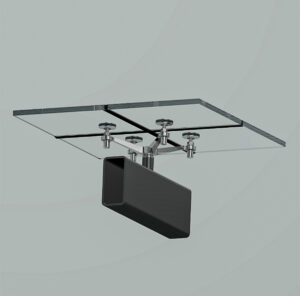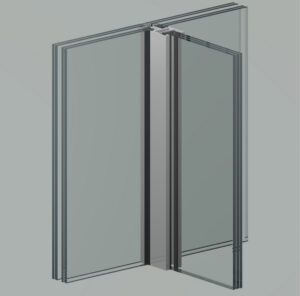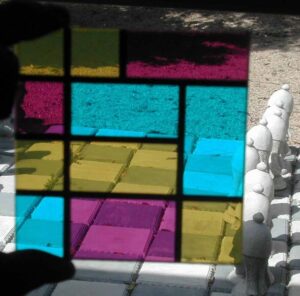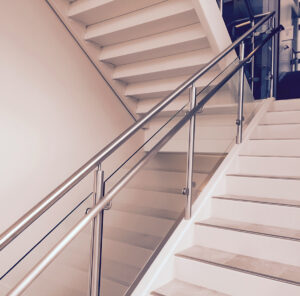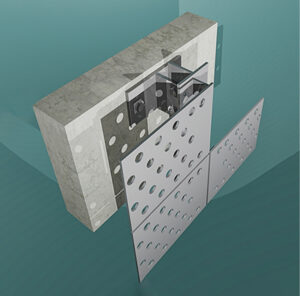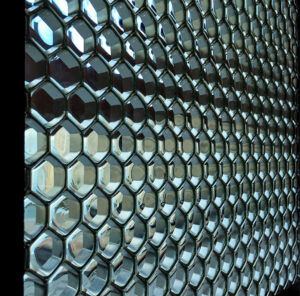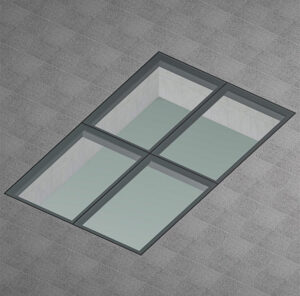
Glass flooring is a unique and modern design element that has gained popularity in contemporary architecture and interior design. Its transparent nature adds an intriguing touch to various spaces, providing both aesthetic appeal and functionality. In this article, we will delve into the advantages and disadvantages of glass flooring, shedding light on its appeal and practicality.
Glass flooring refers to the use of tempered glass panels as the walking surface in floors. These panels are often layered and reinforced to ensure strength and safety. The result is a transparent or translucent floor that allows light to pass through, creating an illusion of openness and visual continuity. For your glass projects you can call Us at tel:+1 602 300 0851
Check out our high quality glass products here:
Advantages Of Glass Flooring
Transparency and Light Enhancement
Glass flooring’s primary advantage lies in its transparency, which makes it ideal for spaces where natural light is limited. By allowing light to pass through, glass flooring brightens up areas that would otherwise feel dark and enclosed. This feature enhances the ambiance and contributes to a more inviting atmosphere.
Aesthetics and Design Flexibility
Glass flooring adds a touch of modern elegance to any space. Its sleek and minimalistic appearance complements various architectural styles, from contemporary to industrial. Moreover, glass flooring offers design flexibility, as it can be customized in terms of shape, size, and texture to suit specific preferences.
Space Optimization and Visual Connectivity
In smaller areas or rooms with dividers, glass flooring can create an illusion of spaciousness. It allows visual connectivity between different levels, making the entire space feel more cohesive. This feature is particularly popular in homes and offices where an open and inclusive environment is desired.
Durability and Longevity
Tempered glass used in flooring is exceptionally durable and can withstand heavy foot traffic and load-bearing pressures. It is also resistant to scratches and impacts, ensuring a long lifespan for the flooring with minimal wear and tear.
Easy Maintenance and Cleaning
Glass flooring is effortless to maintain, requiring simple cleaning with standard glass cleaning products. Unlike carpets or other flooring materials, glass does not trap dirt, allergens, or odors, making it a hygienic option for those with respiratory sensitivities.
Contact Us For Unique Products And Services
Disadvantages of Glass Flooring
Slippery Surface and Safety Concerns
One of the primary drawbacks of glass flooring is its slippery surface, especially when wet. This can pose safety risks, particularly in high-traffic areas or spaces with children and elderly individuals. Anti-slip coatings or textures can be applied to mitigate this concern.
Sound Transmission and Privacy Issues
Glass flooring has a higher sound transmission compared to materials like wood or concrete. This can result in noise traveling between floors, potentially causing disturbances in quiet areas. Moreover, the transparent nature of glass may compromise privacy, which can be a concern in certain settings.
Susceptibility to Scratches and Damage
While tempered glass is durable, it is not entirely scratch-proof. Sharp or heavy objects can potentially cause scratches on the surface. Furthermore, although tempered glass is less prone to shattering, it is not entirely shatterproof, and severe impacts can lead to breakage.
Temperature Regulation and Energy Efficiency
Glass is not an excellent insulator, which means it may not effectively regulate temperature like other flooring materials. In extreme weather conditions, glass flooring may lead to heat loss or gain, affecting the energy efficiency of the space.
Is Glass Flooring Suitable for All Areas?
The suitability of glass flooring depends on the specific requirements and preferences of the space in question. Glass flooring is an excellent choice for areas where light enhancement and design aesthetics are crucial. However, it may not be the best option for spaces with high safety demands or privacy concerns.
Safety Measures and Regulations
When installing glass flooring, certain safety measures and building codes must be followed to ensure the well-being of the occupants. This may include the use of non-slip treatments, load-bearing tests, and adherence to safety standards.
Comparing Glass Flooring with Other Options
To make an informed decision, it is essential to compare glass flooring with alternative flooring materials in terms of cost, maintenance, safety, and design options. Understanding the pros and cons of each option can aid in selecting the most suitable flooring solution.
Tips for Maintaining Glass Flooring
Proper maintenance is crucial to preserve the beauty and functionality of glass flooring. Regular cleaning and avoiding harsh cleaning agents will help maintain the transparency and shine of the glass.
Incorporating Glass Flooring in Home Decor
Glass flooring can be a captivating addition to home interiors. By strategically placing glass panels, homeowners can create stunning visual effects that elevate the overall decor of their living spaces.

Enhancing Glass Flooring with Lighting
The integration of lighting features with glass flooring can enhance its visual appeal, especially during the evening or in dimly lit areas. Creative lighting arrangements can make the glass panels appear to float, adding a touch of magic to the design.
Environmental Impact and Sustainability
Glass flooring’s environmental impact should be considered, particularly with regards to its production and disposal. Exploring sustainable options and recycling measures can minimize its ecological footprint.
Case Studies: Successful Glass Flooring Installations
Examining real-life examples of successful glass flooring installations can provide insights into best practices, innovative designs, and practical applications.
Glass Flooring Myths Debunked
Certain misconceptions surround glass flooring. Addressing and debunking these myths can help potential users make well-informed decisions.
Glass Flooring in Commercial Spaces
Glass flooring can be an eye-catching feature in commercial settings, such as shopping malls, museums, and office spaces. Understanding its advantages and challenges is essential for successful implementation.
Future Trends in Glass Flooring
As technology and design continue to evolve, so does the world of glass flooring. Exploring emerging trends can inspire novel applications and innovative solutions.
Conclusion
Glass flooring is a fascinating design element that offers a balance of aesthetic appeal and functional benefits. Its transparency and design flexibility make it a sought-after choice for modern interiors. However, potential users must also consider safety concerns and installation complexities. By understanding the advantages and disadvantages outlined in this article, individuals can make informed decisions about incorporating glass flooring into their spaces. For more informational articles like these you can visit our website https://halsinternational.com/

